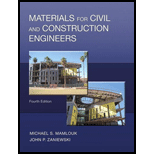
Pearson eText for Materials for Civil and Construction Engineers -- Instant Access (Pearson+)
4th Edition
ISBN: 9780137505586
Author: Michael Mamlouk, John Zaniewski
Publisher: PEARSON+
expand_more
expand_more
format_list_bulleted
Question
Chapter 1, Problem 1.36QP
To determine
Typical values of specific gravity of three materials commonly used in construction.
Expert Solution & Answer
Want to see the full answer?
Check out a sample textbook solution
Students have asked these similar questions
|||
=
1% 11. LTE2
Voi)
Vol)
1. LTE1
SEARCH
8 VYT
bartleby.com/dashboard
ASK
√x MATH SOLV
affected resale value at year 5, would that affect
perceived value-in-use? How exactly?
There is an error in submission of
question
Check it out!
See if this is the solution you're looking for
VIEW FULL SOLUTION
Not what you're looking for?
Keep submitting your original question
SUBMIT QUESTION
. The average soil weights for a clay are the following: 2,050 pounds in Loose CY, 2,675pounds in Bank CY, and 2,835 pounds in Compacted CY What is the swell percentage for theclay?
A traffic count taken between 7:00 a.m. and 2:00 p.m. on a rural highway found the following hourly volumes.
Time
7:00-8:00 a.m.
Hourly volume
332
8:00-9:00 a.m.
311
9:00-10:00 a.m.
263
10:00-11:00 a.m.
273
11:00 a.m.-12:00 p.m.
289
12:00-1:00 p.m.
1:00-2:00 p.m.
286
265
If these data were collected on a Tuesday in February, estimate the AADT (in veh/day) on this section of highway. Assume that the expansion factors given in this table, this table, and this table apply.
veh/day
Chapter 1 Solutions
Pearson eText for Materials for Civil and Construction Engineers -- Instant Access (Pearson+)
Ch. 1 - State three examples of a static load application...Ch. 1 - A material has the stressstrain behavior shown in...Ch. 1 - A tensile load of 50.000 lb is applied to a metal...Ch. 1 - A tensile load of 190 kN is applied to a round...Ch. 1 - A cylinder with a 6.0 in. diameter and 12.0 in....Ch. 1 - A metal rod with 0.5 inch diameter is subjected to...Ch. 1 - A rectangular block of aluminum 30 mm 60 mm 90...Ch. 1 - A plastic cube with a 4 in. 4 in. 4 in. is...Ch. 1 - A material has a stressstrain relationship that...Ch. 1 - On a graph, show the stressstrain relationship...
Ch. 1 - The rectangular block shown in Figure P1.11 is...Ch. 1 - The rectangular metal block shown in Figure P1.11...Ch. 1 - A cylindrical rod with a length of 380 mm and a...Ch. 1 - A cylindrical rod with a radius of 0.3 in. and a...Ch. 1 - A cylindrical rod with a diameter of 15.24 mm and...Ch. 1 - The stressstrain relationship shown in Figure...Ch. 1 - A tension test performed on a metal specimen to...Ch. 1 - An alloy has a yield strength of 41 ksi, a tensile...Ch. 1 - Prob. 1.21QPCh. 1 - Figure P1.22 shows (i) elasticperfectly plastic...Ch. 1 - An elastoplastic material with strain hardening...Ch. 1 - A brace alloy rod having a cross sectional area of...Ch. 1 - A brass alloy rod having a cross sectional area of...Ch. 1 - A copper rod with a diameter of 19 mm, modulus of...Ch. 1 - A copper rod with a diameter of 0.5 in., modulus...Ch. 1 - Define the following material behavior and provide...Ch. 1 - An asphalt concrete cylindrical specimen with a...Ch. 1 - What are the differences between modulus of...Ch. 1 - Prob. 1.33QPCh. 1 - A metal rod having a diameter of 10 mm is...Ch. 1 - What is the factor of safety? On what basis is its...Ch. 1 - Prob. 1.36QPCh. 1 - Prob. 1.37QPCh. 1 - A steel rod, which is free to move, has a length...Ch. 1 - In Problem 1.38, if the rod is snugly fitted...Ch. 1 - A 4-m-long steel plate with a rectangular cross...Ch. 1 - Estimate the tensile strength required to prevent...Ch. 1 - Prob. 1.42QPCh. 1 - Briefly discuss the variability of construction...Ch. 1 - In order to evaluate the properties of a material,...Ch. 1 - A contractor claims that the mean compressive...Ch. 1 - A contractor claims that the mean compressive...Ch. 1 - Prob. 1.47QPCh. 1 - Prob. 1.48QPCh. 1 - Prob. 1.49QPCh. 1 - Briefly discuss the concept behind each of the...Ch. 1 - Referring to the dial gauge shown in Figure P1.51,...Ch. 1 - Repeat Problem 1.51 using the dial gauge shown in...Ch. 1 - Measurements should be reported to the nearest...Ch. 1 - During calibration of an LVDT, the data shown in...Ch. 1 - During calibration of an LVDT, the data shown in...
Knowledge Booster
Similar questions
- A project schedule has been updated. The activity placement of spread footing concretewas originally scheduled to begin as early as day 10. The activity duration is 4 days. The actualstart day was day 12. The original schedule had a calculated total float of 7 days for this activity.The recalculated total float for the activity, when updated, would bearrow_forwardIn preparation for a public hearing, an engineer needs to estimate the travel time savings for a proposed highway bypass of a small city in a rural area. The existing highway goes through the downtown area for 4.1 miles between the points where the bypass will connect. (a) If the engineer anticipates a standard deviation of 7 mi/h and would like a 95% confidence of estimating the mean speed within ±4 mi/h, how many runs should a travel time study include? (Enter the minimum number of runs that achieves a 95% confidence level.) runs (b) If the engineer measures an average speed of 34.9 mi/h through the town and the bypass is expected to operate at speeds of 65 mi/h over a distance of 6.2 miles, what is the expected travel time saving (in minutes) per vehicle? minutes Need Help? Read It Watch Itarrow_forwardfollow the instructions and make sure to right the complete solutionarrow_forward
- I need help solving this question, I don't know how to approach itarrow_forwardI do not know how to approach this problemarrow_forwardConsider a pool of saturated water at atmospheric pressure. The base of the pool is made of thick polished copper square plate of length 1 m. To generate steam, exhaust gas is flowing underneath and parallel to the base plate with velocity 3 m/s and average temperate of 1090°C. The bottom surface the plate is at constant temperature of 110°. Use the properties of air for exhaust gas. a) Determine the boiling heat transfer rate. b) Determine the temperature of the top surface of the plate. Comment on the results. c) Examine the impact of your assumptions on your solutions. (what will change if any of the assumptions is not valid?)arrow_forward
- -The axial deflection pipe in inches. -The lateral deflection of the beam in inches -The total deflection of the beam like structure in inches ? all to 4 sig figs AI did not help. as i input what i get im not sure if its a rounding error or what.arrow_forward1. For the foundation shown below: Qapp = 60 kips (Load obtained from structural engineer) 1.5 ft G.W.T. 3 ft Poorly Graded Sand (SP): Ym 115 pcf (above G.W.T.) Ysat 125 pcf (below G.W.T.) c' = 0, ' = 35° K Square footing, 4' x 4' Foundation Dimension Information: 1-ft x 1-ft square concrete column. 1-ft thick "foot" flanges. Yconc=150 pcf *Assume weight of reinforcing steel included in unit weight of concrete. *Assume compacted backfill weighs the same as in-situ soil. Assume this foundation is being designed for a warehouse that had a thorough preliminary soil exploration. Using the general bearing capacity equation: a. Calculate the gross applied bearing pressure, the gross ultimate bearing pressure, and determine if the foundation system is safe using a gross bearing capacity ASD approach. Please include the weight of the foundation, the weight of the backfill soil, and the effect of the uplift pressure caused by the presence of the water table in your bearing capacity…arrow_forward٢٥ ٠٥:٤٠١٠ 2025 ChatGPT VivaCut Onet Puzzle مسلم X Excel JPG I❤> PDF Copilot Chat Bot PDF2IMG iLovePDF NokoPrint O.O StudyX ☑ W CapCut Candy Crush DeepSeek Word ☐ Saga 啡 AcadAl ل TikTokarrow_forward
arrow_back_ios
SEE MORE QUESTIONS
arrow_forward_ios
Recommended textbooks for you
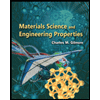 Materials Science And Engineering PropertiesCivil EngineeringISBN:9781111988609Author:Charles GilmorePublisher:Cengage Learning
Materials Science And Engineering PropertiesCivil EngineeringISBN:9781111988609Author:Charles GilmorePublisher:Cengage Learning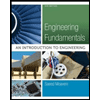 Engineering Fundamentals: An Introduction to Engi...Civil EngineeringISBN:9781305084766Author:Saeed MoaveniPublisher:Cengage Learning
Engineering Fundamentals: An Introduction to Engi...Civil EngineeringISBN:9781305084766Author:Saeed MoaveniPublisher:Cengage Learning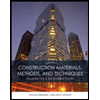 Construction Materials, Methods and Techniques (M...Civil EngineeringISBN:9781305086272Author:William P. Spence, Eva KultermannPublisher:Cengage Learning
Construction Materials, Methods and Techniques (M...Civil EngineeringISBN:9781305086272Author:William P. Spence, Eva KultermannPublisher:Cengage Learning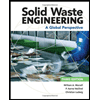 Solid Waste EngineeringCivil EngineeringISBN:9781305635203Author:Worrell, William A.Publisher:Cengage Learning,
Solid Waste EngineeringCivil EngineeringISBN:9781305635203Author:Worrell, William A.Publisher:Cengage Learning,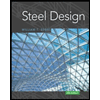 Steel Design (Activate Learning with these NEW ti...Civil EngineeringISBN:9781337094740Author:Segui, William T.Publisher:Cengage Learning
Steel Design (Activate Learning with these NEW ti...Civil EngineeringISBN:9781337094740Author:Segui, William T.Publisher:Cengage Learning

Materials Science And Engineering Properties
Civil Engineering
ISBN:9781111988609
Author:Charles Gilmore
Publisher:Cengage Learning

Engineering Fundamentals: An Introduction to Engi...
Civil Engineering
ISBN:9781305084766
Author:Saeed Moaveni
Publisher:Cengage Learning

Construction Materials, Methods and Techniques (M...
Civil Engineering
ISBN:9781305086272
Author:William P. Spence, Eva Kultermann
Publisher:Cengage Learning

Solid Waste Engineering
Civil Engineering
ISBN:9781305635203
Author:Worrell, William A.
Publisher:Cengage Learning,

Steel Design (Activate Learning with these NEW ti...
Civil Engineering
ISBN:9781337094740
Author:Segui, William T.
Publisher:Cengage Learning